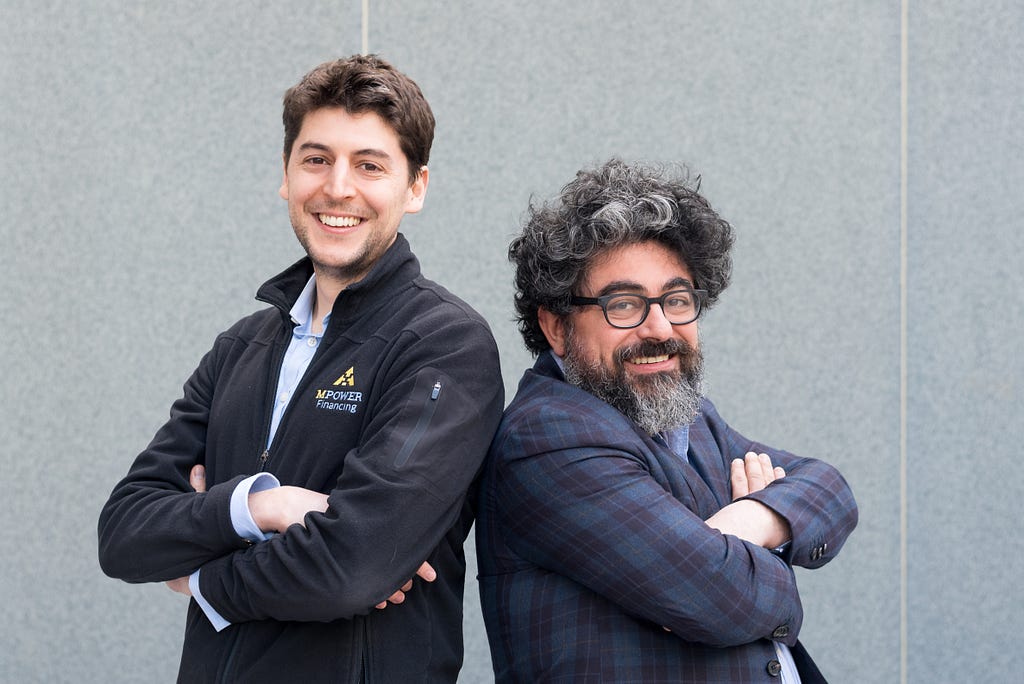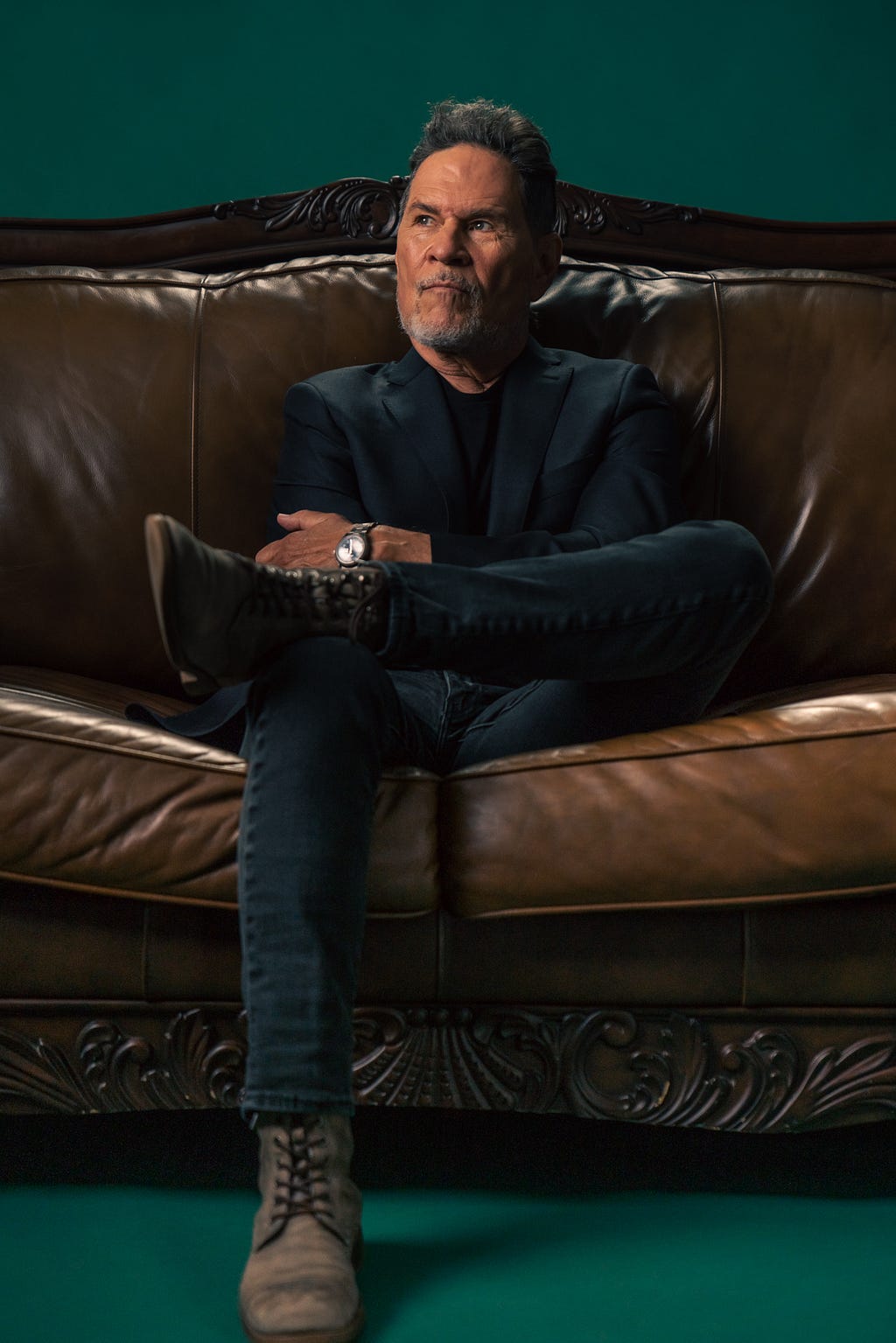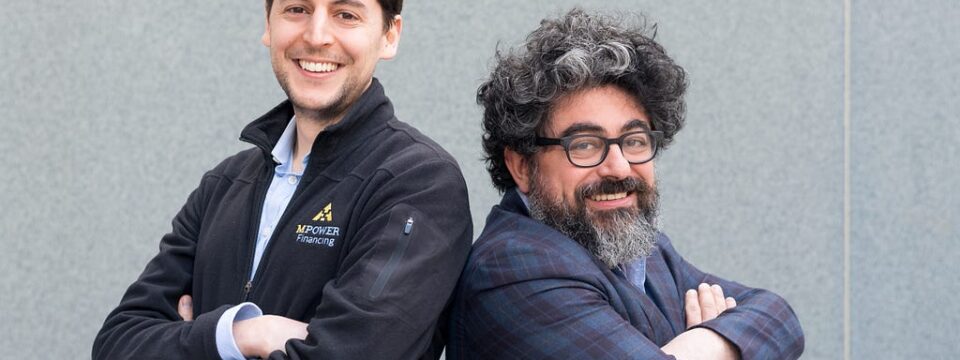Adolfo Larrue Martínez III On The 5 Things You Need To Create A Highly Successful Career in TV and Film

Your suspicion that you don’t belong — that your inclusion in the community must be evidence that someone in power has made a mistake — is much more widely held than you imagine. Even among those who hide it best.
As a part of our series about creating a successful career in TV and Film, I had the distinct pleasure of interviewing Adolfo Larrue Martínez III.
Adolfo Larrue Martínez III, widely known as A Martinez, was born on September 27, 1948, in Glendale, California. He is of Mexican and Apache descent from his father’s side, while boasting Piegan Blackfeet and Northern European ancestry from his mother’s lineage. Throughout his childhood, the nickname “A” became the preferred name he would later adopt professionally.
Martinez’s initial interest in studying political science at UCLA was overtaken by a passion for acting. This shift was perhaps influenced by his early endeavors into the world of arts. As a child, he showcased his singing talents by clinching a talent competition at the Hollywood Bowl. Additionally, Martinez’s younger years were enriched by participating in Kiwanis youth softball each summer and starring in various school musical productions.
His acting debut came early when he was 12, and he subsequently played in a semi-pro baseball team for five seasons. Over the years, Martinez established a versatile acting portfolio. In the world of cinema, he is recognized for roles in films such as “The Cowboys” (1972), “Powwow Highway” (1989), “Curse of Chucky” (2013), and “Ambulance” (2022).
However, his prominence is deeply rooted in television. Martinez’s remarkable performances span across series like “Santa Barbara,” “L.A. Law,” “Profiler,” and “Longmire.” Notably, he embraced the role of Jacob Nighthorse in the TV series “Longmire.” By 2022, he had joined the cast of the Netflix live-action series “Avatar: The Last Airbender,” portraying Master Pakku.
Throughout his career, Martinez has been honored with various nominations and awards, including a Daytime Emmy Award and three from the Soap Opera Digest Awards. Beyond his professional life, Martinez wed actress Mare Winningham in 1981, albeit briefly. A year later, he tied the knot with Leslie Bryans, and the couple has since been blessed with three children.
Thank you so much for joining us in this interview series! Can you tell us the story of how you grew up?
I was the oldest of six kids. My mom and dad first slept together on the occasion of my dad’s 24th birthday, and I was born exactly nine months later. They kept having children for quite a while — looking for a daughter to interrupt the string of boys — and were finally gifted with my sister Diane as child five. My brother Rick came later, rudely described in jokes as having been a “mistake.” (My folks remained married their whole lives, and both were living under the roof of Rick and his wife Jen when they passed.) As a family, we’ve always been very tight, and it’s a closeness that is treasured by us all.
Can you share a story with us about what brought you to this specific career path?
I was lucky enough to have a great teacher in Junior High School who lit the love of theatre in me. Her name was Ruth Anderson. She was a singing teacher who’d previously been working in LA as a professional pianist. She asked our principal if he’d let her stage musical productions based on Broadway shows she loved — and he said yes. So, Ruth directed cut-down versions of The King and I, HMS Pinafore, and West Side Story in the three years I was her student and cast me in them.
Through Ruth, I fell in love with the power of theatre to make people feel. And like all of us under her wing, I also fell in love with Ms. Anderson. She taught us the core techniques of controlling our breathing when we sang; she introduced us to basic music theory and to the process of composition itself. On top of which, she somehow wrangled ways to get us onto the radio and into recording studios to commemorate what we’d learned. She remained a friend through all my life.
Can you tell us the most interesting story that happened to you since you began your career?
In 1984, I was offered the daytime show SANTA BARBARA for NBC. I was afraid of getting stuck in it and said “no” three times. Thankfully, the producers didn’t take me at my word and continued to ask until I changed my mind. The show was an international hit, and the wonderful writers wrote remarkably soulful, challenging story arcs for me to play throughout the eight and a half years and sixteen hundred plus episodes I worked on it.
On vacation toward the end of the show’s run, I was walking down a wide staircase in a multi-level restaurant in Hawaii, descending in lock step with one of the waiters, directly across from me. Her eyes drifted toward me as we reached the bottom, and she stopped. “Oh my God. You’re on that show. I can’t tell you how much it means to me…”
There were already tears in her eyes, and later I recalled what it felt like years before — in the reading of Hemingway’s A Farewell to Arms — when art first brought tears to my own eyes. As we live, we learn that catharsis is a sacred process — those moments when we are provoked to reawaken to the nourishing power of all we hold in common. It is an immeasurable gift, and no single mode of telling story has a monopoly on it.
It has been said that mistakes can be our greatest teachers. Can you share a story about the funniest mistake you made when you were first starting? Can you tell us what lesson you learned from that?
Not sure how funny it is, but I let myself get rushed once into shooting a scene on horseback that my horse and I weren’t quite ready to do. It was the first scene of many for the day and the urge to “get going” was running rampant. I went directly from the make-up trailer to the top of a small hill and approached my horse. In the scene, I had to ride him from this hill, down into and across a small valley, and then up and over another hill to escape from a mob of angry riders chasing me. This horse and I were strangers. I took a moment to give him a little scratch on the neck and say hello. We were both very cold — my costume for the day was a loin cloth. I jumped on his back and evened the reins — ”action” was quickly called. We lurched into a gallop and set out down the hill.
The little valley in front of us featured a lot of dead-looking bushes that were chock-full of long, nasty thorns. Toward the far side was one particularly gigantic thorn bush (or cluster of bushes?) that rose up a good ten or twelve feet off the ground and spanned maybe twenty feet across. My horse was galloping directly toward this monstrosity, and it was only when I tried to change his course that I realized he’d got the bit between his teeth before we even started — and I had no control. I thought, “He’s not going to run into that giant bush, but I won’t know which way he’ll veer till it’s too late to protect myself. I’m getting off.” I threw my weight to the left to initiate my departure. Immediately, in mid-air, I remembered the hoard of horses behind me.
I put my arms around my head, brought my knees up — and bounced and bounced and bounced and bounced. The following horses were astonishing athletes, and only one of them hit me — a glancing blow to the ankle. I finally slid to a stop as the horses went on by. Even though I couldn’t breathe, I was amazed to realize that I was probably gonna be okay — fairly sure I hadn’t broken anything. Our great showrunner Edgar Sherick was the first to arrive at my side, even though he was oldest person on the set. The worst parts of the experience became waiting for my lungs to start working again and then digging several broken-off half inch thorns out of my ass. Fifteen minutes later — having downed a massive amount of Advil — I got back on the horse.
But the lesson of that morning has endured to this day: Don’t ever allow yourself to be rushed when you’re tasked with doing something dangerous on a set. The potential for tragedy is always lurking, so no matter what — don’t allow it. In this instance, the takeaway is that horses, like actors, greatly benefit from rehearsal. If you walk a path with a horse before he or she feels the pressure of “action” being called, that horse will do its work much more smoothly and good–naturedly. It’s a matter of common courtesy and common sense, and a terrible thing to forget.
What are some interesting or exciting projects you are working on now? (Tell us about Dark Winds.)
I play Sheriff Gordo Sena in the second season of DARK WINDS, which will arrive July 30th on AMC. Zahn McClarnon is utterly brilliant as the lead of this wonderful drama — every bit as heartfelt as it is dangerous. I consider Zahn a brother and it’s an honor to work in support of him.
The show is based on the unforgettably gritty, spirit-drenched novels by Tony and Anne Hillerman, and looks deep and hard at the lives of Navajo Tribal Police officers Joe Leaphorn (McClarnon) and Jim Chee (Kiowa Gordon). It brought us a highly compelling first season and has only gotten better in its second go-round.
My character is a quietly haunted man who’s stayed too long in his job, and he was simply a joy to play: A tart, cranky cop who’s tired of being on his feet and lives now to take short-cuts; a man who fears the world is changing in ways that can only mean ruin for us all. “The monsters ain’t in the shadows anymore, Joe — they’re in broad damn daylight.”
Some of the stuff I got to play, especially with Zahn, stands among the very best writing to ever come my way, and it’s hard to put into words how grateful I am to have been trusted with it. At the end of the day, DARK WINDS will be one of the projects I look back on with the greatest affection, and I’m very happy that people who’ve found and love the show will get to see the second season this summer.
In September, the western movie FAR HAVEN will be released. It’s a beautiful story of redemption, and I play the town blacksmith in support of my LONGMIRE brother, Bailey Chase.
Sometime later in the year the eighth season of THE BAY will be released, and in 2024, the series debuts of AVATAR: THE LAST AIRBENDER and BLUE RIDGE (headlined by Johnathan Schaech) will drop. I’ve got interesting supporting characters in each of these and at this point the applicable cliché is: Please don’t pinch me, I don’t want to wake up.

You have been blessed with success in a career path that can be challenging. Do you have any words of advice for others who may want to embark on this career path, but seem daunted by the prospect of failure?
Early on, the most difficult thing to make one’s peace with — at least for the vast majority of actors — is the number of times you have to experience the disappointment of not getting the part. It’s almost always a single role you’re reaching for, and almost always a big pool of contenders trying to land it. So “they’re going another way” is a phrase you must be able to hear repeatedly without coming undone.
If you’re going to make a life in this, you have to keep stepping up to the challenge in spite of the difficulty of the odds built into it. There’s no way to duck that. A turning point came for me when I learned to re-frame my career as a series of auditions, rather than jobs. In fact, a huge chunk of all the acting I’ve ever done has happened in my auditions. And in front of a very important audience — the casting directors.
Once I realized that one of the few aspects of the journey that I could control was to do my best — my very, very best — in every audition, the whole process got easier to handle. The commitment to never waste a casting director’s time; to bring something original, well-considered — and dead bang memorized — to every single chance I got to be seen. Secure at least in the knowledge that the next time my name came up in a pitch, the casting director would remember that I’d always made it worth their while to check me out — even when I wasn’t, as usual, the “one.”
We are very interested in diversity in the entertainment industry. Can you share three reasons with our readers about why you think it’s important to have diversity represented in film and television? How can that potentially affect our culture?
Diversity in the entertainment industry speaks directly to the issues of unequal justice and tacit, automatic exclusion that have so long plagued us. Looking back, I never thought I’d see the day where it would be fairly normal to see various peoples of color and human beings of a variety of body types and genders be core participants in the telling of our mainstream stories. Such artists generally subsisted on the fringe of the business in all the early years of my career, and it’s thrilling to see the playing field finally begin to change.
The value of this development is measured in several ways. To see ourselves represented honestly in mass media relieves a certain degree of the existential stress that has accumulated in the psyches of those of us previously excluded: the psychic pressure of constantly witnessing the sweet spots of the land of opportunity from the outside looking in. The relief of that pressure is a path to the maintenance of better mental health.
But more critically, diversity in our storytelling allows the whole body of us to witness the practice of decency and doubt and empathy and courage spread across a wider spectrum of the society than ever before. And in seeing these values we recognize in ourselves embedded in the fictional lives of people we’ve previously cast as “the others” — we are freed of some of the irrational fear of one another that the suppressively stereotypical storytelling of the past has nurtured in us. For the obvious reason that irrational fear is corrosive to our spirits — its reduction is a gift.
What are your “5 things I wish someone told me when I first started.”
Your suspicion that you don’t belong — that your inclusion in the community must be evidence that someone in power has made a mistake — is much more widely held than you imagine. Even among those who hide it best.
Your perceived weaknesses are every bit as compelling — the portal through which so many of the people you’re reaching will come to identify with you — as your strengths.
As a professional, every single day of your working (and auditioning) life adds or subtracts from the reputation that grows around you. And at the end of the day, nothing matters more than that reputation.
If you pause to look back and reimagine your career as a race, you’ll finally see that it was always meant to be a marathon — rather than a sprint.
In all undertakings — but never more critically than in art — fortune favors the bold.
How can our readers follow you online?
Thanks for this chance to take stock of my journey. It’s been a lot of fun.
My handle on Instagram and Twitter is @abonemartinez.
(A Bone was my dad’s nickname for me, and it has stuck.)
This was very meaningful, thank you so much! We wish you continued success!
Adolfo Larrue Martínez III On The 5 Things You Need To Create A Highly Successful Career in TV and… was originally published in Authority Magazine on Medium, where people are continuing the conversation by highlighting and responding to this story.
